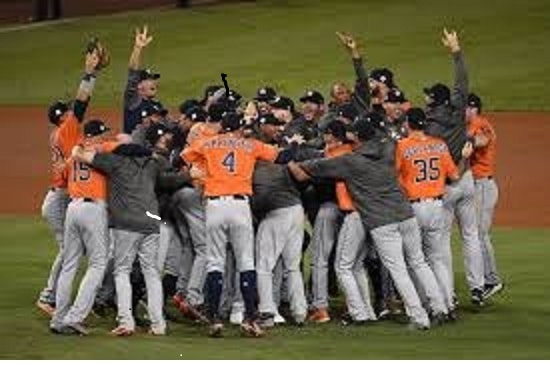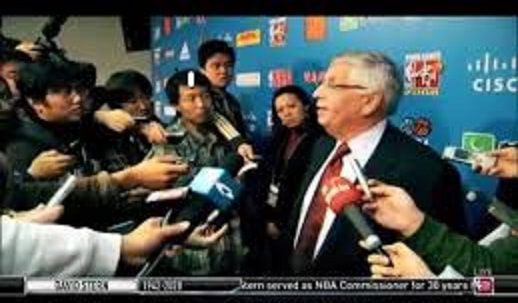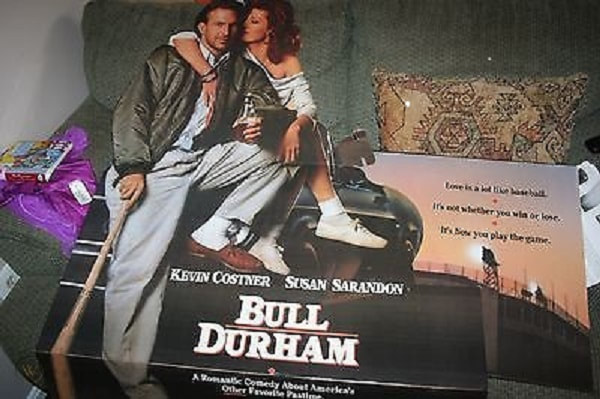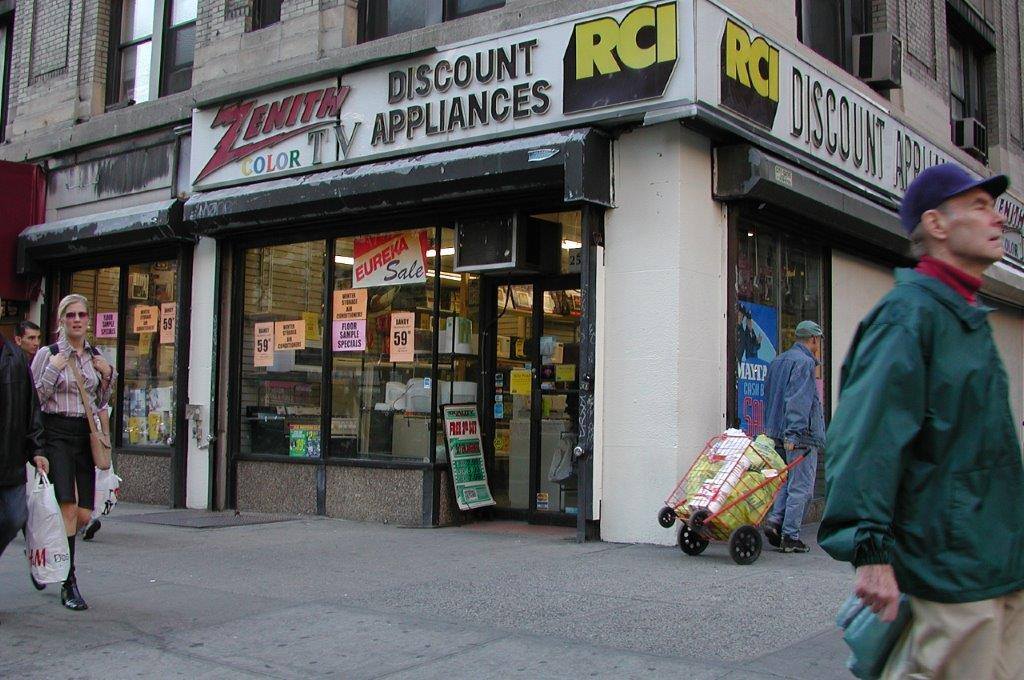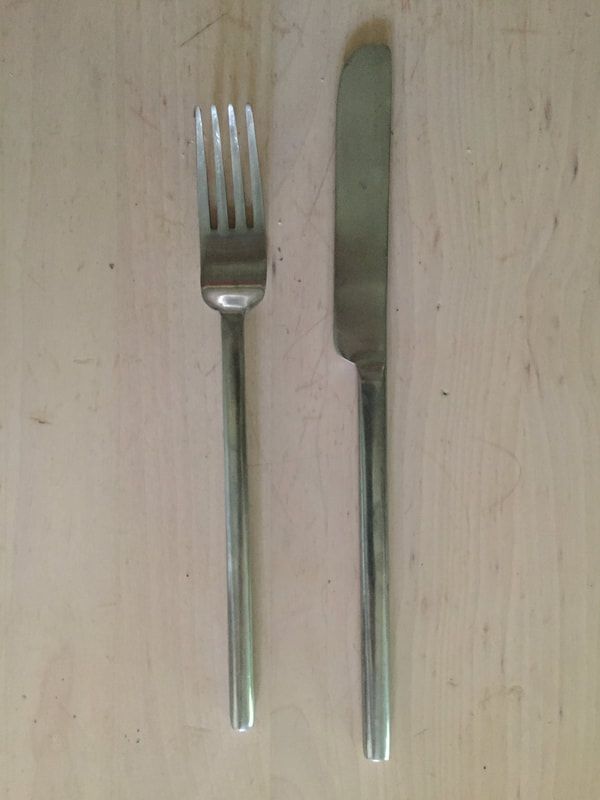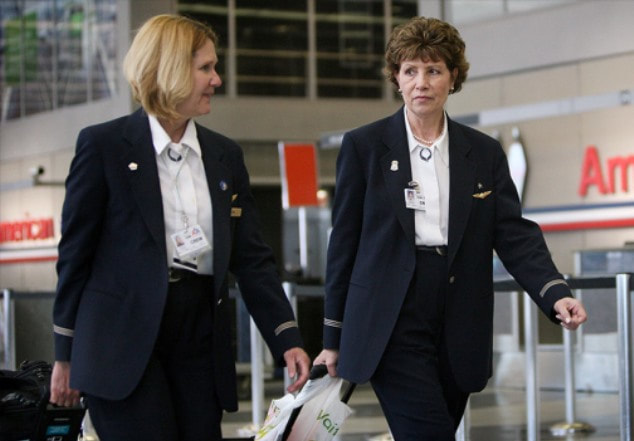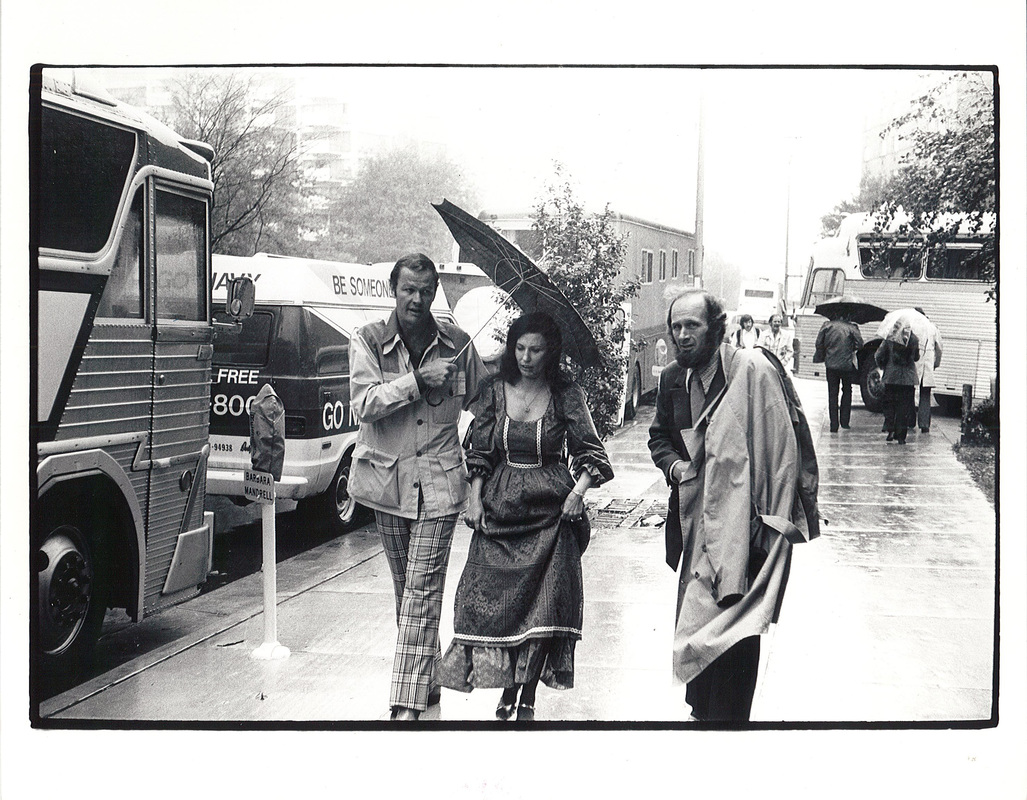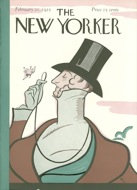|
I’d like to wax moralistic about the baseball scandal that got a manager and a general manager of a championship team fired on Monday.
I feel cheated because I fell in love with that Houston team three-four years ago, so much talent, so much charisma with Altuve and Springer and seemingly admirable guys like Hinch and Cora and Beltrán. Now, as a Mets fan, I want to know how this scandal affects their new manager, Carlos Beltrán, but according to the commissioner, you can’t really bust a dugout full of players. (Plus, players have a union.) So it seems Beltrán will be the manager. Just hide the garbage-pail cans. So many scandals, so much cheating. I'll admit, I used to think it was funny when ball players I knew were caught with sandpaper or thumb tacks in their pockets to doctor the ball, or a catcher had a sharp edge on his belt buckle so that the two-out, two-strike pitch would swerve downward, game over. Then, a generation ago, everybody had new muscles all over them, and players were whacking 50 or 60 or 70 home runs a year. Looks to me like burly, wired pitchers were cheating, too. Then again, out in the Real World, public figures are lying every time they move their lips, and have reputations for not paying their bills and cheating on their wives, while preachers tell their flocks to vote for them. Just saying. No names mentioned. After I absorbed the breaking news of suspensions and subsequent firing of Houston general manager Jeff Luhnow and manager A.J. Hinch, I flipped to the news section of the Times and read a piece by the great Michael Kimmelman. He is one of the jewels of the paper, who has morphed from art critic to covering the social implications of architecture over the world. As described by Kimmelman, that new playground for the 1 per cent, known as Hudson Yards – Heaven forbid New York should try to house its working class – is trying to slip a two-out, two-strike pitch past the city by building a huge garage on the west side of the playpen for the rich. (Never mind that the city is already choking on cars, and trucks and limos, plus amateurs swerving around on rented bikes.) The new garage would loom right where a much-needed rail tunnel to the American mainland should be rounding into shape – except that big-mouth Chris Christie blew up the project when he was governor of New Jersey. His one-finger salute to society is surely the first thing on Christie’s lifetime resumé. Now, like some pitchers I used to know, the builder of Hudson Yards was going to slip one by the public. This little surprise would loom over the High Line, the quirky elevated walkway with the great views that has enhanced the city and even encouraged people to get out and walk. The friendly folks at Hudson Yards were going to pour the concrete and block out the view and explain it all later, as builders do all over New York. Fortunately, Kimmelman and the NYT got word of this Down near the bottom, he included a quote from a state senator about the builder of Hudson Yards: “The last thing New Yorkers need is a wall, and from all people, Steve Ross.” That, Kimmelman dutifully noted, was a reference to Ross’s recent fund-raising efforts for, oh but you guessed it, President Trump. It is not clear whether our public servants can undo the mischief, the trick pitch, from the Vaseline on the back of Steve Ross’ neck. Meantime, the Astros will find another manager and general manager, and there will be a baseball season. No matter who is ingesting what, or stealing what signals, the new season will somehow seem more wholesome than just about anything else going down these days. ### Kimmelman's story: https://www.nytimes.com/2020/01/10/arts/design/hudson-yards-expansion.html?searchResultPosition=2 Astros' cheating: https://www.nytimes.com/aponline/2020/01/13/sports/baseball/ap-bba-astros-sign-stealing.html?searchResultPosition=1 “You have no idea what I’m talking about, do you?”
That’s when I started to really like David Stern. It was 1980, and I was just back after a decade in the Real World, now trying to write something scrutable about the finances of pro basketball. I had been referred to David Stern, then the lawyer/financial adviser with the National Basketball Association. After a decade in the Appalachians rather than Madison Square Garden, I remembered the N.B.A. as a haimish mom-and-pop outfit. Now, apparently, the players were making money, which meant the owners were making even more. Stern started giving me a primer on cable television, and why NBA championships were going to be seen in prime time, by millions and millions. I must have given him my usual blank look whenever finances are discussed. (My wife knows that look well.) Stern gave that big but lethal smile and said he would try to make it simple for me. That first meeting set the tone for a long and respectful, if rather sporadic, relationship. Stern, who died on New Year’s Day at 77, is the best sports commissioner I ever covered – making the most impact and lasting 30 years in the job. In addition to his killer-shark business instincts, he also displayed human responses Most sports executives treat reporters like the fools and outsiders we are, but Stern patronized me in a rather respectful way, to let me know I was worthy of a rudimentary education. He was a business maven with the golden touch, who seemed to invent players named Bird and Magic and Michael. Amazing. He also retained at least a feel of the old funky N.B.A. The first league social function I attended – the dinner at an All-Star Game, can’t remember when or where – had its share of business types and current stars but also members of a diverse family: old office fixtures who had worked for the N.B.A. going back to the Maurice Podoloff era, plus several current female basketball players, and a lot of black faces. Two things showed me the human side of David Stern: ---Micheal Ray Richardson had to be banned for life after testing positive once too often. I’ve seen sports leaders grow vindictive, take it personally, when their hired hands let them down, but Stern, talking to a knot of reporters, shook his head at the banishment of the charismatic but hapless star. “This is tragedy,” he said. And I liked him even more. ---One time I wrote a column praising another sports official for taking a stand against prejudice, and on a Sunday morning I got a call at home from Stern praising the column, privately, between us. I was not lulled into misjudging him. I was not totally surprised when Rod Thorn, a star player and long-time insider, hardly a bomb-thrower, disclosed that Stern was acerbic, demanding, around the office. Neither did I think Stern was running a charity. When labor issues arose, he would tell reporters that he was open to any deal that would help both sides. Showing that frightening smile, he would say: “I’m easy. Easy Dave.” Oh, yeah. The league was changing. The N.B.A. opened offices overseas, hired women – women—with language skills and contacts to do-good causes. My friends in the international press, based in New York, started to get credentials for Knicks games because the league had plans beyond the borders. One night, a couple of Italian journalists gave a KOBE 7 soccer jersey of AC Milan to the Lakers’ star, who grew up in Milan. The N.B.A. was not in Sheboygan anymore. (It used to be; you could look it up.) Last example: A couple of decades ago, the New York Times tried to expand its horizons, with a special sports magazine. To attract influential advertisers, the Times held a little dog-and-pony show somewhere in Madison Square Garden, as I recall. A handful of us were to give little talks to the heavy hitters. I gave a rather introverted and whiny talk about how dedicated we journalists were, as if we were humanitarian priests and nuns feeding the poor in El Salvador or something. At the reception afterward, Easy Dave sidled over to me, and with nobody else in earshot he said, “You really don’t get it, do you? These people want to hear about the stars you meet, the games you cover, the places you go. They don’t want to hear shop talk. They want stories. Excitement. Glamor.” As soon as I saw those teeth flashing, I knew he was right. I never had another sports executive criticize me more directly, more privately, more accurately. (Honorable mention: George Young of the football Giants and Fay Vincent of baseball.) I could see why David Stern built the NBA into a world force. I tried to learn something from him. And now I will miss Easy Dave. It has long been my suspicion that the people who own and run baseball do not actually like the sport.
Otherwise, why would they keep meddling with it, almost as if to drive people away? From my old-timey point of view, I think the self-destruction got worse with the designated hitter, and continued with a glut of interleague play that has demolished the old September pennant confrontations. The owners’ documented sins have included collusion on salaries, neglect of the steroid evidence, the noise and gimmick bombardment at games, which generally begin so late (on the East Coast) as to make sure young people never get the flow of the game. (I could rant about the sterile network blather in the recent World Series, but I won't.) In recent years, the owners have avoided hints of technological sign-stealing, and have been complicit in the doctored baseballs that their launch-arc “hitters” try to propel prodigious distances, feeling no shame at striking out. Now it’s even worse. The owners are planning to strangle the ancient network of minor-league teams and leagues in the smaller cities of America. There is currently a plot to demolish 42 teams in places where people can enjoy baseball for, let’s say, five bucks. The owners, who have feared anti-trust penalties over the years, are ripe for Congressional oversight with this caper, if Congress were functioning, that is. The owners -- who by the way spend millions and millions on marginal "major-league" players -- are trying to save a few dollars in minimal salaries to hopeful prospects, the vast majority of whom will never get close to a major-league uniform. But the farmhands perform the game with zest and hope, spitting and scratching and posturing for the home fans in generally balmy weather in the ancient ritual of Take Me Out to the Ball Game. The owners have figured it out that the compliant college system is producing prospects, as are the hard barrios of Latin America and baseball-centric Asian nations like Japan and South Korea. So why subsidize these towns “out there” – when in fact it seems these 42 minor-league teams have subsidized our generous owners? For a glimpse of how it works, the New York Times dispatched one of its very best writers, Dan Barry, to Lexington, Ky., hardly a backwater town. Commissioner Rob Manfred has targeted Lexington and its league to be dropped off, like an elder left at a dog-track, or a litter of kittens given a sporting transfer to the town dump. One of the principal tasks in the job description of sports commissioners is the shakedown of towns hopeful of keeping, or gaining, a franchise. Like a thug out of “The Sopranos” or a rogue President menacing a vulnerable nation like Ukraine, commissioners go around putting the squeeze on towns to upgrade ballparks in America’s outback. “Nice little place you got here,” sports commissioners say. “Be a shame if you lost it because you didn’t have better bathrooms or lights or public-address systems” (or bat racks, for goodness’ sakes.) Now baseball is going to red-line the minor leagues. The “sport” lives on a history of prospects like Babe Ruth pitching and taking his hacks in his home-town minor-league Baltimore, or a skinny kid pitcher named Stan Musial living in a rented room in Williamson, W. Va,, where the Cardinals sent their hordes of desperate (white) prospects during the Depression. Or fans around Lynchburg, Va., who still remember effervescent young Dwight Gooden in 1983, when he was 18 years old, with his 19-4 record and 300 strikeouts. The legend of the minors is that almost nobody ever makes it to what Kevin Costner’s character calls “The Show” in the immortal “Bull Durham.” (I never heard that phrase until the movie came out.) But in fact, the Mets’ 1983 roster in Lynchburg contains around a dozen players I recognize as having made “The Show,” including skinny young Lenny Dykstra before he got muscles on his muscles one winter. The minors are part of our American legend. My friend Jerry Rosenthal played two years in the Milwaukee Braves system; I love his tales of talented teammates like Rico Carty and Bill Robinson, the bus rides, the gritty managers, admirable hitting coaches – Dixie Walker! Andy Pafko! Look ‘em up, kids -- and the weekend he outhit a Cub prospect named Lou Brock. (Jerry has the box scores to prove it.) The minor leagues are the soul of the sport but the owners do not seem to know this. They should cut a few Analytics Types and let baseball people teach the next wave how to make contact (like Jeff McNeil, the professional hitter who embarrassed the Mets last year -- by succeeding.) The owners have what you might call their own thing; they control the American sport, and are cutting out the fringe people in the heartland. * * * (The great Dan Barry, writing from Lexington, Ky.) https://www.nytimes.com/2019/11/16/sports/minor-league-baseball.html (Dwight Gooden’s stats for the summer of ’83.) https://www.baseball-reference.com/register/team.cgi?id=fb98f180  432 Park Avenue offers a digital New York salute 432 Park Avenue offers a digital New York salute The hissy fit by Amazon reminds me of one of the best things that has happened to my home town -- not getting the 2012 Summer Olympics. This happened in 2005, when the City Council voted down a stadium that would have been plopped down on the far west side of Manhattan to accommodate the Typhoid Mary of sports events. Since the Games were given to London, the Hudson Yards area of Manhattan has grown, without having to work around a neighborhood killer of a stadium. I say that as a sports columnist who was a very early critic of the proposal. My memory was just jogged by the rising up of people who resented the $3-billion tax benefits to be given Amazon, which wanted to build a “campus” in the Long Island City section of Queens. Rather than negotiate with critics – show some respect for the locals -- Amazon turned tail and ran. The political aspects have been well reported in the Times and elsewhere. Experts and business people say Amazon really would have meant 25,000 new jobs in the city, but I say they would have been jobs for new people, out-of-towners, with technological skills, eager to pay the gouge prices in new high rises in formerly lumpen Queens. As David Leonhardt points out, Queens already has jobs: https://www.nytimes.com/2019/02/17/opinion/amazon-new-york.html As a native of Queens (who lives just to the east these days), I love the boom all over my home borough -- the languages and energy and skills and food: Oaxaca restaurant in Corona; Korean restaurants along Northern Blvd. I’m not sure Queens needs the great favor Amazon was going to bestow. Many people living near the proposed “campus” would have been displaced by the land rush and the rent-grubbing and the price-raising. (See: “Brooklyn, hipsters.”) To Jeff Bezos, I would say a few things: 1. Thank you for the Prime delivery of a 64-ounce container of kitchen-drain cleaner rather than my having to run to the store during the deep freeze this month. 2. Please, keep reporting on that disturbed person in Washington with your wonderful paper, The Washington Post. 3. When local activists express their concerns, please, learn to negotiate. This is Noo Yawk, for goodness’ sakes. (“If I can make it there, I’ll make it anywhere.” Guess you didn’t.) 4. And while I think of it, please read your own paper’s electronic files about the stupidity of people who take intimate selfies. This uprising by “progressives” – whatever that means – seems to have come as a shock to Gov. Cuomo and Mayor DiBlasio (who keeps changing his story, as in his 180-degree swerve in the Times on Monday.) I would give some advice to these illustrious public servants. (The same would apply to former mayors Bloomberg and Giuliani.) 1. Fix the damn subways first. Help working people get to work. 2. Pay attention to the rising seas, because the disturbed President has no clue. 3. Pay attention to those dreaded “progressives.” These guys are always running for President rather than fixing New York. They need to know that New Yorkers don’t like out-of-towners telling us what the deal is. Jeff Bezos, say hello to the New York Echo: Visitor: Hello-o-o-o-o! New York Echo: Shut the f--k u-u-u-u-p! ------ *-Homage to the greatest headline any of us will ever see, written by William J. Brink, managing editor of the New York Daily News, when President Ford did not help the city during the 1975 financial crisis: FORD TO CITY: DROP DEAD. When the lights went out in New York City on July 13, 1977, looters took over many streets, breaking into stores, carrying merchandise away.
The next morning, Alan Rubin, the owner of an electronics store at West 98th St. and Broadway, posted a sign in his window: “WE ARE STAYING.” Order was restored from the blackout and the general good will of New York returned. Alan Rubin was but one of thousands of small-business operators committed to making a living in the neighborhoods of the city. Now his daughter, Jen Rubin, has written a book about those days, and the feeling for people and the city that many New Yorkers have. Her book is titled: “We Are Staying: Eighty Years in the Life of a Family, a Store, and a Neighborhood.” Rubin, who lives in Madison, Wis., is a regular on the Moth story-telling series. She comes from an accomplished family -- her mother, Sandi, worked for the Jerusalem Foundation, and her brother, Josh, is an attorney for the city. Regulars on my site will be familiar with frequent posts by Alan Rubin. His daughter uses his quotes in 1977 to explain why he stayed: “I’m responsible for twenty-five families—the families of people that work for me,” Alan Rubin said. “What’s going to happen to them if I pull out? As bad as I got hit, there are other guys that got wiped out. What’s going to happen if they can’t reopen? What can the city and government do to keep people like us from leaving these neighborhoods?” And she writes about his feel for his business, then known as Radio Clinic: “Forty-three years earlier his dad, who had run for his life from Russia, put his stake down on this block and slowly built up the business. When Grandpa became ill with cancer, he passed the business on to his son and son-in-law. This was the family’s business, and my dad wasn’t budging.” Alan Rubin kept his store going and retired in 2006. He and Sandi now live in the Berkshires, where he, a former star goalkeeper for Lehigh University, teaches the position to young people, out of his love for the sport. Jen Rubin’s new book is available through her website: https://www.rubinjen.com/we-are-staying--the-book.html Catering to the Thumb Generation (of which I am a fringe member), Major League Baseball disappeared a game from television on Wednesday.
The business that still charmingly thinks of itself as The National Pastime has a new partnership with the dippy kid in the gray t-shirt, Mark Zuckerberg. I think that means all information on Mets Nation -- all we scruffy, gauche losers who root for one miracle every generation – is now in the hands of Comrade Vladimir in the Kremlin. Facebook was already chums with something called Cambridge Analytica which seems to have been in cahoots with various apparatchiks during the 2016 election including the possible next national security advisor, Mad Dog Bolton. Baseball is letting the t-shirt guy put the occasional major-league game on Facebook so people can like or dislike what transpires on the field. The price for one MLB game a week is $30-million for the season – that’s what matters, isn’t it? In real life, it’s not that hard to tell if baseball fans like or dislike something. Just the other day, Giancarlo Stanton struck out five times in his Yankee Stadium debut and Yankee fans faithfully gave him something called a Bronx Cheer. Schnooky old baseball managed to distract from Wednesday’s Mets-Phillies game in Queens. James Wagner of the Times appropriately wrote an entire sagacious article about the t-shirt guy’s coup rather than the Mets’ bullpen or the clutch hit. (Tyler Kepner did write a column about the game itself.) What with all the teeth-gnashing about baseball’s sellout, it seemed the game itself vanished into the dark hole of likes and dislikes. Not true. I caught most of that game on this strange medium called radio. The Mets’ game was on WOR – 710 on the AM dial – described by Howie Rose and Josh Lewin. Rose, aware the game had vanished from the tube, offered the observation, “I think radio is here to stay.” Home-town fans get used to their TV and radio broadcasters. When the national broadcast pre-empts a Met game, I opt for radio. Mets fans don’t need national drop-in experts telling them stuff they already know. Plus, the sellout by #ShamelessMLB on Wednesday meant that Mets-TV addicts were forever deprived of possible weird dialogues such as the one that ensued during Thursday’s game in Washington, with Gary Cohen monitoring the banter between old teammates from 1986, Keith Hernandez and Ron Darling. Darling to Hernandez on Good Old SNY: Were you this funny when we played together? You’re pretty funny. Cohen: He was the Prince of Darkness back then. That's what Mets fans expect – not twiddling of thumbs. At least the t-shirt guy hasn’t sold all of baseball to Cambridge Analytica. (Memo to Mark Zuckerberg: when you are hauled into Congress next week, go find a suit. Play dressup.) * * * Speaking of Queens and baseball, my friend-the-writer, Rabbi Mendel Horowitz, has written about following baseball in Israel during Passover: Enjoy: http://jewishjournal.com/opinion/232675/why-is-this-sport-different/ Who made this &*%$#@?
How often do we scream this? I do, every time water dribbles on my feet from the dispenser on our refrigerator. I do, every time one of our imbalanced knives or forks goes clattering to the floor. I do, every time I have trouble with coding or design on my not-totally-smart-phone. Fortunately, I have found the perfect tool for one of those problems. Hint: you probably have a dozen under your desk. First: the refrigerator. (I sometimes say “icebox” to annoy my wife.) Fairly new, and functional, except for the cheap pieces of plastic in all recent household appliances, designed to break after the warranty runs out. The main problem is the gadget that dispenses ice (crushed or cubed) or water (allegedly cleansed by a pricey little filter.) To get water or ice, you push in a curved bar with a glass; the H2O comes out of the innards; when you have enough, you take the glass away – and another few seconds’ of water, solid or liquid, falls to the floor. Infuriating. No adjustment or fast hands can solve the problem. My theory is that the people who built this device never, ever, tested it. Just built it. Out of innate politeness, I will avoid mentioning the maker. Let me just say: Kamsahamnida. * * * Then there is our dinnerware, sleek and silvery, only used when we need a full set. So pretty to look at. But the tines do not hold much, and when you lay the knife or fork down, the handle is so top-heavy that it performs a one-and-a-half gainer onto the tablecloth and thence to the floor, with rice, salad or fish splattering on the rug. They never tested the thing. Just built it. Out of innate politeness, I will avoid mentioning the maker. Let me just say: the imprint on the silverware reveals the country where it was made. Hsieh-Hsieh * * * Then there is my smartphone. I’ve only had it a few years – resisted a long time, but now I am hooked. Check for emails every 60 seconds. It works pretty well, but the other day I could not fit the charger into the rectangular slot. My wife’s charger did not fit, either. Oh, great, I thought, those blankety-blankers will tell me I need a new super-duper 12A phone, or whatever series they are up to. This is a costly little malfunction. Then I had a thought. Nature’s wonder tool. Should be hawked on late-night TV. The humble paper clip. Good for what ails you. Cures the common cold. I opened one segment of the paper clip and inserted it into the slot where the charger no longer fit. I wiggled it gently. And out tumbled a pound or two of what we New Yorkers call schmutz -- detritus from my pocket, my desk, my yard, my jogging shorts. The charger now fit. * * * I don’t think the paper clip will help fix the spattering water dispenser or clattering silverware. I have given it a permanent place of honor on my desk. Here’s the stupidest thing I have read in a while (excluding American politics, of course.)
Akbar Al Baker, the head of Qatar Airways, recently criticized the blatant flaw in America commercial aviation – the age of its flight attendants. He seemed to mean the females, ignoring the male ones. Customers of American lines are "always being served by grandmothers," said Akbar Al Baker, who also called American carriers “crap.” He’s half right, but that’s not the point. He noted that female attendants on his airline have an average age of 26, as if that were the major qualification for helping customers jammed together in a tin can in the sky. Flying from Point A to Point B is not a fashion show or beauty pageant. Style was more important back in the day when service and amenities were better, when burly, hairy passengers did not wear shorts or sweatpants and chew on nasty-smelling fast food out of a paper bag. Failing United even had thugs drag a bloodied passenger from a flight after he was randomly selected for termination by overbooking. It’s all a good reason for staying home, which I do, after 50 years of travel. But one thing I know is that flight attendants could make things slightly better, and that your chances of expertise were often in direct ratio to a decade or three of experience. Older attendants have been there and done that. When the airlines created havoc by charging for luggage, the attendants dealt with so-called carryons with a sense of authority and a feel for space. This is a generalization, but they did not get flustered. Solve the problem. Many older attendants seemed to know stuff, could even drop a quip, if it looked like you might get it. I am blessed with being able to sleep on planes. Gone before the wheels leave the ground. One time I slept through a three or four-hour flight. Woke up on touch-down. An older attendant nodded and said, “very impressive.” That was in coach. (The Times did not subsidize business travel for peons like me.) But when my wife was escorting children from India for adoption by others, her aunt – who worked at a great airline named Pan-Am; perhaps you have heard of it – often arranged an upgrade. Those attendants saw her lugging one, two, once even three babies, and they found corners with more space and provided water, towels, food, whatever she needed. They were the best. We all know that top executives, to please stockholders, have turned American carriers into hellish avatars of capitalism – your pass or your few extra dollars qualify you for a few more precious inches. Airlines no longer respect family groups by encouraging agents to play with the computer to put families together. Pay a stipend – or sit in a middle seat surrounded by strangers. Tough. You should be rich. Your fault. I’m not comparing attendants of Qatar with attendants on American carriers. Different cultures. I’ve seen uniformed attendants from the Emirates at the U.S. Open tennis, where their company was a sponsor -- their outfits fashionable, their demeanor modest, their posture superb, their smiles lovely; they represent their part of the world well. But jammed into a torture chamber at 30,000 feet, wishing for one small favor with a touch of intuition, I’m opting for 40, 50, whatever. Older attendants notice stuff. Isn’t that what “service” means? PS: Mr. Al-Baker recently issued an executive-style walking-back, or apology. Too late. We know what he thinks. See: http://fortune.com/2017/07/13/qatar-airways-ceo-apologizes-for-calling-u-s-flight-attendants-grandmothers/ (*-I actually don’t know what a “bot” is. But it sounds good for the purposes of this rant.) The modern electronic age has turned me into a cat burglar, on my hands and knees, messing with wires and cords and plugs. I like to think this is not merely a young-old chasm as everybody scrambles to keep up with new developments with cellphones and computers and all these so-called labor-saving devices. The good side is that I managed to slip inside the velvet rope of minimal competence. The Internet and the gadgets allow me to do things and learn things that were impossible in my first two decades in journalism. I have older friends of sound mind who stare blankly when I say “web site” or “emails.” They missed the Last Train to Clarksville for all the little stupidities that so captivate me. When I broke into the business, we used typewriters and paper. With the help of technology mentors at the Times like Howard Angione (“If Vecsey can learn this, anybody can”) and Charlie Competello and Walt Baranger, I learned some stuff. In the early ‘80’s, a union electrician turned off the press-box power at the stroke of midnight and blow out my portable computer. In Barcelona! But the next day I was able to find the right tubes in a growing technology block in that grand old city. In the early days, I crawled around musty hotel rooms, unscrewing stuff and attaching primitive wires or clips. (One reporter risked his life splicing his bulky Kaypro computer to live wires from a dripping air conditioner in his hotel room.) Later, I had to explain to dubious hotel clerks why I needed to borrow a dedicated 800 fax line for 30 seconds to transmit an article from my laptop. Nowadays, I call help centers when the wi-fi doesn’t work in my hotel room. This is called progress. Somehow, I manage this personal therapy web site – photos, copy, headlines, type size – after training-wheels tutorials from my patient friend Becky Collet. Labor-saving devices? A good friend (older than me) and I compare notes about constantly updating our contacts. In my house we have three – count ‘em, three – clickers for one TV set and one sound bar. If my finger hits the wrong button, my wife has to reprogram the whole thing. At times I dutifully try to diagnose the problems that pop up from having, oh, just a few cable boxes around the house. Recently, a TV went dead. We ran around for days trying to sort it out. We exchanged boxes. Then we drove a TV to a throwback reputable repair place my wife discovered half an hour east of us. Nope. TV worked. And the guy waved off a bench charge. Can you imagine? Ultimately, the problem was a faulty gizmo in the cable coming into the house, installed by our local company. “No way you would know,” the technician told us before the office tried to bill us $80 for fixing their faulty piece they installed. I keep blaming that cable company for the twin blights of Carmelo Anthony and Madison Square Garden, but it seems the cable portion has been sold to some Dutch company. Somebody smart sorted out the problem; maybe it was Amsterdam or maybe it was Long Island. Either way, this is also called progress. (*- I made a list of recent words I do not fully understand, even if I may actually use them: meme, avatar, Siri, Sirius (are they related?), bluetooth, bitcoin, millennials, hipsters, (wait, whatever became of yuppies?), apps, cookies, streaming, podcasts, spotify, plus new baseball statistics with strange initials that I totally reject. I have my limits.) * * * I forgot to include this stanza from Loudon Wainwright III's "Last Man on Earth:" Everybody's got a website But that's all Greek to me I don't own a computer I hate that letter "e" I don't pack a cell phone Or drive an SUV Yes, I'm the last man on Earth That's what the matter is with me 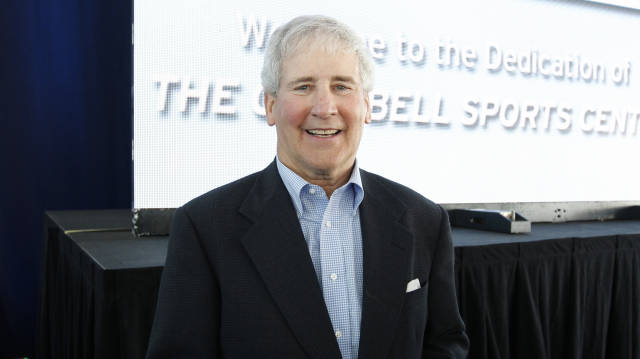 The Campbell Sports Center. That, too. Columbia University Athletics/Gene Boyars The Campbell Sports Center. That, too. Columbia University Athletics/Gene Boyars Bill Campbell was a man of many homes, who reveled in all of them. He went from the Monongahela Valley of Pennsylvania to Morningside Heights of New York City to Silicon Valley, and remained the same person – high energy, high expectations. Campbell, who passed on Monday at 75, intrigued me as a beacon to others, by willing himself to a whole new life, after a term as yet another Columbia University football coach with a losing record. Instead of catching on as an assistant coach at some other school, he reinvented himself in the growing dot-com world. Not everybody can shift gears at that level, but he proved it can be done. He became known as “Coach” to some of the biggest companies - Apple, Google, Intuit -- even advising competitors. I've often said I wished the leadership qualities of some coaches and managers leaders I admired -- Gil Hodges, Al Arbour, Herman Edwards, Dean Smith, Pia Sundhage -- could be grafted into the newspaper business. (Some other coaches were cruel and selfish louts.) "Billy (as I knew him) was one of a kind: a 165-pound all-Ivy League linebacker and guard, (two-way players in his day), who was the most natural leader I’ve ever met," wrote Jonathan R. Cole, athlete, professor and former provost at Columbia. (From Jamaica High School in Queens, speaking of roots.) Cole continued: "His type of intelligence can’t be measured in SAT scores or even GPA, but in the power of his personality to lead people anywhere. He was like the original Pied Piper -- his friends would follow him anywhere. His intelligence about people, his irrepressible energy, his warmth, his understanding of people and how to make them feel good about themselves was beyond measure." He continued: "He was made to lead - and despite the despair he experienced in continually losing as coach of Columbia’s football team, he loved his players and they loved him. He was, indeed, a Shavian life force. Those people come along rarely and now one is gone. I’ll miss him." I saw Campbell play once and talked to him on the phone once. In 1961 he was the captain of Columbia’s Ivy League champs, who, in the last game of the season, took a lead before Rutgers rallied to finish its season undefeated. (I was in the Rutgers stands that day after my brother-in-law borrowed somebody’s photo ID. I believe I was Wesley Wu.) I talked to Campbell in 2009 when the National Football Foundation and College Hall of Fame re-named its annual award for a scholar-athlete for Campbell. Over the phone, I felt his gusto for frequent homecomings to New York (he had a favorite pub downtown) and his home town of Homestead, Pa. Campbell's father had worked in the steel mills to send himself through college – and eventually become superintendent of schools. That faded world is described in the epic book, “Homestead: The Glory and Tragedy of an American Steel Town,” by William Serrin. Profiled in the Serrin book is Ray Hornak, a foreman with a conscience, whose son, the Hon. Mark R. Hornak of the U.S. District Court for Western Pennsylvania, was president of the Steel Valley school board in 1987. “I had the pleasure of introducing Bill as the graduation speaker at our high school,” Judge Hornak recalled Tuesday. “His speech was terrific, but even better was the day that he spent at the high school with group after group of students, talking about achievement, dreams and how to do big things (as each kid would define them.)” That day, the judge recalled, Campbell and Apple announced a major partnership with the school district, a public/private partnership in something called The Office of the Future. "It brought 1987 tech to an industrial town high school,” Judge Hornak recalled, “but most of all, it threw the windows open on how our kids could view themselves, their education and their future.” (Campbell also donated money; he didn’t talk much about numbers.) Campbell also stayed close to his alma mater, eventually becoming the chairman of the Columbia trustees. He carried himself as the avuncular coach-for-life, who encouraged a young athletic trainer, Neila Buday (a good friend of my family.) “This is tough,” Neila wrote on Tuesday. “Bill was such a special person. I know that phrase is used often but here it truly applies. In my first few years working as an athletic trainer at Columbia, Bill embraced me into the Columbia Football family, both figuratively and literally as friends were always greeted with a big hug and kiss. Years later he embraced my husband Greg into this family as well, and loved the FDNY shirt Greg gave him. It gave him pride to wear it at the gym back west. “When I left Columbia in 2010 he sent me an e-mail letting me know that I would always be part of that Columbia Family. Despite all his accolades, connections and relationships with the tech industry power players as the ‘Coach of Silicon Valley,’ I don't think anything meant more to him than Columbia football. I have seen him cry after both wins and losses. Both his son (Jimmy) and daughter (Maggie) went to Columbia. He bled Columbia Blue. “After the Columbia Football Gold Dinner, or other Columbia formal functions, he could be found behind the bar at Old Town, tie undone and Columbia baseball cap on, handing out beer and burgers, always making sure you had a cold one in hand. "You would never know who he was or how spectacular he as an industry leader. You just saw his charisma and genuineness. I loved watching the friendships he had with his former teammates, the famous 1961 team, and those players he coached. His smile was lit from within when he was around them. “He will be missed by so many, but Columbia Football lost a true treasure.” Neila Buday concluded: “Scroll through Facebook and see what all the former players have to say, how much he helped them, how humble he was.” A wise analysis by Ken Auletta: http://www.newyorker.com/business/currency/postscript-bill-campbell-1940-2016 The NYT obit: http://www.nytimes.com/2016/04/19/business/bill-campbell-coach-of-silicon-valley-stars-dies-at-75.html My 2009 column on the NCAA award: http://www.nytimes.com/2009/09/06/sports/ncaafootball/06vecsey.html?_r=0 The Fortune obituary: http://fortune.com/2016/04/18/remembering-bill-campbell/ A Columbia alumni feature: http://www.college.columbia.edu/cct_archive/may05/cover.php Other voices celebrating Bill Campbell: https://storify.com/allaboutgeorge/how-we-mourned-silicon-valley-coach-bill-campbell When I was helping Loretta Lynn write her book (“Coal Miner’s Daughter”), I got used to visible signs of security.
The bus driver, big Jim Webb, with his Elvis pompadour, tucked a softball bat under his seat – “In case a ball game breaks out,” he would drawl. There were fake names in hotel registers, to foil stalkers. And I got used to interviewing people with their pistols on the table. (“Umm, could you point that the other way and cover it with your ball cap?” I would ask.) That security was necessary. So was Loretta’s formidable (and large) manager-agent, David Skepner, a Beverly Hills guy who had moved to Nashville. “DAYYYY-vid,” Loretta would drawl. “You are mah son-of-a-bitch.” After Skepner signed on, Loretta’s visibility went up, and so did her price. She won Country Music Entertainer of the Year, first woman to do so. She went on the “Today” show. She hired a writer (“Jawrge, you are mah wrahter”) and she watched talented people (not me) make a great movie about her life. Even when they stopped working together, Loretta would call Skepner and get his guidance, now for free. He was her son-of-a-bitch. I tell this story as Mets fans quiver over the machinations by Matt Harvey’s agent, the notorious Scott Boras, who has dropped a skunk in the middle of a garden party the Mets are tossing this September. He has raised questions – valid doctor’s questions, at a highly awkward time – about how many more innings the reconstructed Mr. Harvey should pitch this year. Possibly, you have heard of this. Boras is Matt Harvey’s son-of-a-bitch. Of course, he was also A-Rod’s son-of-a-bitch -- until he botched a feint toward the Red Sox. They no longer work together. Boras has led Harvey into a gross and intrusive display during a pennant race, but that is his job, until it isn’t his job. I am assuming the Mets were always going to minimize Harvey, more than 180 innings, far short of being a workhorse into the post-season. (Remember the speculation of whether Bartolo Colon would be on the post-season roster?) Now the Mets may view Matt Harvey differently – as expensive collateral in the off-season: Cespedes Money. But that’s the chance agents and their clients take. This is perhaps a little secret of life, but some writers also have agents. I had one, and now another, and both have served me well. I’m just guessing that some people who question Scott Boras’ ethics also have representation. In this cut-throat world, more people could use their own personal son-of-a-bitch. Dow Jones Industrial Average 2 Minute
Dow Jones Indices: .DJI - Mar 6 4:35pm ET 14296.24+42.47 (0.30%) I'm not a big money guy, and I know the Dow Jones is not a total indicator of national economic health. All I can say is, this is what happens when a nation elects a Kenyan socialist introvert. It's all his fault, as usual. I write this not only out of admiration for The New York Times but out of love for Mexico.
Many years ago my wife and I took a day trip to Teotihuacán and climbed the thick steps of the Pyramid of the Moon. We stayed a long time on top, marveling at the view, and still recall how it was easier – less scary -- to climb down backwards. We’ve never been back to Teotihuacán but I have returned to Mexico for work and pleasure. I consider it a dear neighbor. On Tuesday I read every word of three full pages of superb reporting in the Times about the profanation of that holy place. The article documents how a branch of the American company, Wal-Mart of Arkansas, apparently sent cash to evade zoning laws designed to maintain the green belt around the Pyramid. Wal-Mart officials apparently found officials in Mexico who would take the money, although other people were suspicious and opposed the new store that went up, that looms there still. The journalism by the Times is compelling. Everything fits, everything sounds right. I am less upset with venal officials in Mexico who did not mind cheapening their patrimony than I am with the American corporation that overlooked clear signs this was happening. Wal-Mart. Nice folks. I was going to fulminate about pompous flag-waving self-proclaimed job creators who tell how much good they do by accumulating riches. But read it for yourself, in case you missed it. It really is worth the effort. http://www.nytimes.com/2012/12/18/business/walmart-bribes-teotihuacan.html?pagewanted=all&_r=0 He was probably heading toward jail when he cruised the main street of our little town back in the day, honking his horn, or when he crashed his car into a tree with teammate Darren Daulton alongside him back in his Phillies days.
Lenny was a thrill-seeker, surrounded by other thrill-seekers. Now he is a pariah to family and others who trusted him. Whoo-hoo! Yippie! That was Lenny on a baseball toot. For a quick refresher course, Lenny 101, please check out my favorite favorite: http://idaveblog.weebly.com/1/post/2012/02/happy-birthday-lenny-dykstra.html Lenny provided legal thrills in October of 1986, running the bases after his game-winning home run against the Astros, running out his shot inside the Pesky Pole in Fenway, reviving the Mets in the World Series.. The part that flummoxed me was Lenny’s career as financial guru and publisher. There was Jim Cramer – the man with the weird inflections of a street person talking to himself - taking Lenny seriously in 2007. Cramer somehow made Lenny out to be a man of his time -- another admirable nervy dude who knew how to convert millions into billions. Kind of makes you wonder about anything Cramer touts, doesn’t it? The only place Lenny made sense was in a uniform with the No. 4 on the back. (The Yankees had the aura of Gehrig; the Mets had the aura of Lenny.) For a few fun years, Lenny was a personification of the franchise, hitting the dirt, head-first. I know somebody who carried his Lenny photograph to the Midwest, to the Northwest, to the New South. He would set up the frame on his desk, just to tick off the locals – Lenny’s bum photographed from behind, his eager little paws swiping at second base. Yippie! People could even shrug off Lenny’s new muscles, as he displayed unexpected power with the Phillies. He wasn’t the only one. Besides, who had lab printouts on Lenny? (Trick question: there was no lab test.) Lenny kept circling the bases, until his body failed. For a brief time he was a New Man of the financial surge, the wise advisor who would help athletes hold on to their money. Once Lenny heard stadiums roar for him. Now he hears another sound. Clang. My New Yorker arrives on Thursday.
It used to arrive on Monday. The only difference, as far as I can tell, is that the United States Postal Service has stopped trying. Paranoid that I am, I suspect a plot. I used to have a ritual. Very early in the week, Monday if possible, I would sit down with the New Yorker, at the expense of other reading material. I would scan it for concerts, art exhibits, odd lectures, take a peek at the fiction, look for the article I never could have imagined. The week was young. But now I don’t get the New Yorker until Thursday, and some events have already taken place. I ascertained that the New Yorker had not changed its publishing or mailing routine. Then I went to the local post office and got a civil answer from a civil servant. Turns out, to save money, the Postal Service now routes magazines and other stuff through another post office 15 miles away. That would account for a day’s lateness, the friendly person said. I count three days. If the Postal Service cannot deliver somewhat perishable reading material in reasonable time, it can also be willfully late in delivering medication, checks, or that relic from the prehistoric age, the letter. Printed matter is already in trouble, as proven by the changes in publishing and journalism. I believe some people will be willing to pay for books and newspapers in their hands – but what about magazines that arrive three days late? I know, I know, the New Yorker is on line. That’s how I found a lovely essay by my friend Roger Angell on Jan. 2, about the decline of the old-fashioned letter. (Roger practices what he preaches; he sent me a sweet letter recently. His handwriting is better than mine.) The essay was classic Angell, witty and crisp and knowing. I’m all for interactive searching of the web to find treasures like this. But when you trust editors to present you material you were not expecting, as I trust the people who produce The New York Times and the New Yorker, it’s worth committing time and money to hold that miracle in your hands. Here’s what I think is happening: people have bellowed so much about getting government out of their lives that it is becoming a self-fulfilling prophecy. This is why Amtrak is so wretched -- because a portion of the country hates the thought of crack trains flitting through Europe and Japan. That’s not the rugged individualist way. Part of the United States has started to doubt the reason for collective behavior. What better place to withdraw commitment than the Postal Service? It’s a plot, I’m telling you. Now I am sitting down with the New Yorker. Gotta catch up. Do the rest of you have this reaction? I walked into a Staples store on Sixth Ave. and 23rd St. in Manhattan Thursday night, needing a few mundane items
I was helped by five – count ‘em, five – nice people with smiles and time and knowledge. One young woman met me at the door, pointed me in the right direction. One clerk dug out a 2012 datebook from a bottom shelf and another fitted refills for several pens, hardly big-ticket items and all requiring more than a few seconds of attention. And two cashiers could not have been more pleasant. Then I read Paul Krugman’s Friday column in The New York Times that Staples has a policy of hiring for service, rather than downsizing. Those polite and well-prepared people were not there by accident. I had the same experience on the phone the other night when I tried to cope with the hopeless non-instructions that came with a new HP printer. I was stunned to get through to Customer Support in Kolkata. The young man said “Calcutta,” the old Anglicized version, as if to reassure his grumpy caller, but we have a family affinity for India, and I knew I was in good hands. He talked me through the inscrutable process and the printer was humming in a short time. Meantime, we hear politicians braying about growing the economy, but the biggest fortunes seem to be amassed by entrepreneurs – no names mentioned -- who line employees against a brick wall and machine-gun ‘em down. I’m not good at the math, but my visceral impression is that I am going to give my business to companies that provide service, whether in person or from Kolkata. Doesn’t that make sense to you? |
Categories
All
|
